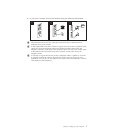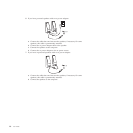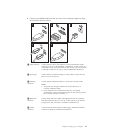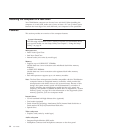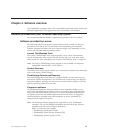v Eight audio connectors on the rear panel (audio line-in connector, audio line-out
front speaker connector, microphone connector, audio line-out subwoofer/center
speaker connector, audio line-out rear speaker connector, audio line-out side
speaker connector, optical SPDIF in connector, and optical SPDIF out connector)
v Internal speaker
Connectivity
v Two 10/100/1000 Mbps integrated Ethernet connectors
v Peripheral Component Interconnect (PCI) V.90 Data/Fax modem (some models)
System management features
v Ability to store POST hardware test results
v Alert Standard Format (ASF) 2.0
v Automatic power-on startup
v Preboot Execution Environment (PXE)
v Remote Administration
v System Management (SM) Basic Input/Output System (BIOS) and SM software
v Wake on LAN
v Wake on Ring (in the Setup Utility program, this feature is called Serial Port
Ring Detect for an external modem)
Input/Output (I/O) features
v 9-pin serial port
v USB connectors (eight rear and two front)
v Two Ethernet connectors
v Two IEEE 1394 connectors (one on the front panel and one on the rear panel)
v eSATA connector
v VGA or DVI monitor connector (requires video card)
v Eight audio connectors on the rear panel (audio line-in connector, audio line-out
front speaker connector, microphone connector, audio line-out subwoofer/center
speaker connector, audio line-out rear speaker connector, audio line-out side
speaker connector, optical SPDIF in connector, and optical SPDIF out connector)
v Two audio connectors on the front panel (microphone connector and headphone
connector)
Expansion
v Three optical drive bays
v One drive bay for either a 3.5-inch diskette drive or a card reader
v Two 32-bit PCI card slots
v One PCI Express x1 card slot
v One PCI Express x4 card slot (mechanical x16)
v Two PCI Express 2.0 x16 card slots
v Five hard disk drive bays
Power
v 1060-watt auto-sensing power supply
v Automatic 50/60 Hz input frequency switching
v Advanced Configuration and Power Interface (ACPI) support
Chapter 3. Setting up your computer 15



